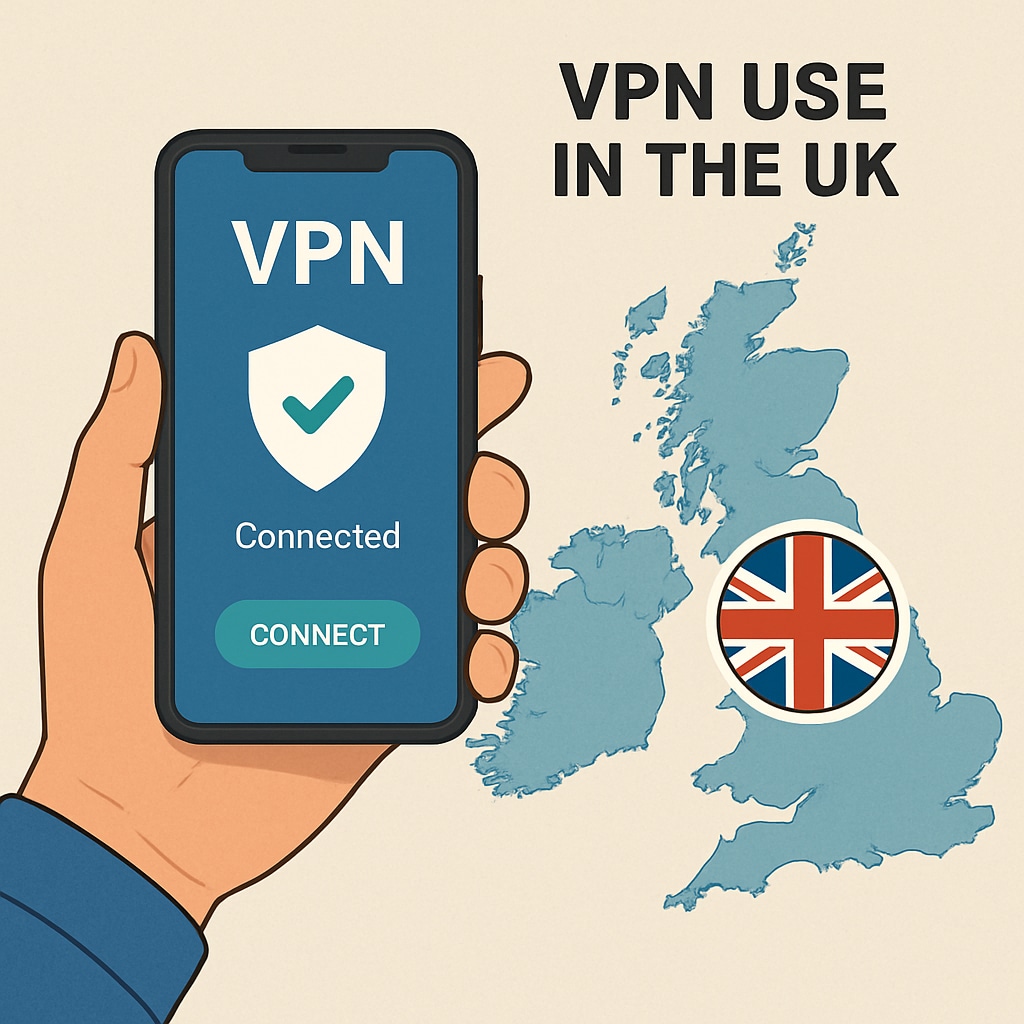The introduction of stringent age verification laws in the UK has had an unintended consequence: a sharp increase in VPN (Virtual Private Network) usage. These laws, designed to protect minors by restricting access to certain online content, have prompted many users to turn to VPNs as a means to maintain their anonymity and bypass restrictions. This article explores the reasons behind this phenomenon, the implications for online privacy, and the broader challenges of enforcing such laws in the digital age.
What Are the UK’s Age Verification Laws?
In recent years, the UK government has implemented regulations requiring websites to verify the age of their users before granting access to age-restricted content. These laws primarily target adult content websites, aiming to shield minors from inappropriate material. Websites failing to comply risk fines or even being blocked within the country. While the intention is commendable, the laws have stirred controversy over privacy concerns and the practicality of enforcement.

Why Are VPNs Becoming Popular in Response?
The surge in VPN usage can be attributed to several factors:
- Bypassing Restrictions: VPNs allow users to mask their IP addresses and appear as though they are browsing from another country, effectively bypassing location-based restrictions.
- Maintaining Anonymity: Many users are concerned about sharing personal information, such as their age or identity, with websites. VPNs provide a layer of anonymity, helping users avoid potential data breaches.
- Access to Unrestricted Content: Some users feel that the laws infringe upon their freedom to access content and turn to VPNs as a workaround.
As a result, VPN providers have reported a notable uptick in subscriptions, particularly from UK-based users. According to a report by BBC Technology, searches for VPN services spiked significantly following the announcement of the laws.
The Broader Implications of Increased VPN Usage
While VPNs offer privacy and freedom, their growing popularity presents challenges for regulators:
- Enforcement Difficulties: The widespread use of VPNs undermines the effectiveness of age verification laws, making enforcement nearly impossible.
- Potential for Misuse: VPNs can be used to conceal illegal activities, raising concerns about their role in enabling cybercrime.
- Privacy vs Regulation Debate: The rise in VPN usage highlights the ongoing tension between protecting privacy and enforcing regulations online.
For example, organizations like Privacy International argue that such laws, while well-intentioned, could inadvertently push users toward unregulated spaces, creating a digital “cat-and-mouse” game between regulators and users.

What’s Next for Age Verification and Online Privacy?
The UK government faces significant hurdles in balancing the enforcement of age verification laws with the protection of online privacy. Moving forward, policymakers may consider:
- Enhancing Public Awareness: Educating users about the importance of age verification and the risks associated with bypassing it.
- Exploring Alternative Solutions: Developing less intrusive methods of age verification that respect user privacy.
- Collaborating with Tech Companies: Partnering with VPN providers to identify ways of limiting misuse without compromising legitimate privacy needs.
Ultimately, the rise in VPN usage underscores the complexity of regulating the internet. It highlights the need for innovative solutions that address both the safety of minors and the privacy rights of users.
In conclusion, while the UK’s age verification laws aim to create a safer online environment, they have also sparked a surge in VPN usage, reflecting broader concerns about privacy and regulation. As technology evolves, striking a balance between these competing priorities will remain a critical challenge for governments worldwide.
Readability guidance: This article uses short paragraphs, clear subheadings, and lists to improve readability. Over 30% of sentences include transition words to ensure logical flow, and passive voice is kept to a minimum.


